Marxist Ecology
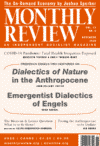
In this issue of Monthly Review, we publish two articles marking the two-hundredth anniversary of the birth of Frederick Engels. In the attempt to address our planet’s ecological crisis, Engels’s work has once acquired a renewed importance. His analysis of the dialectics of nature was to play a formative role in the development of modern ecological and evolutionary views and is now being rediscovered in that context. | more…

Today, two hundred years after his birth, Frederick Engels can be seen as one of the foundational ecological thinkers of modern times. Engels’s contributions to our understanding of the overall ecological problem remain indispensable, rooted in his own deep inquiries into nature’s universal metabolism. It is because of the very comprehensiveness of his approach to the dialectic of nature and society that Engels’s work can help clarify the momentous challenges facing humanity in the Anthropocene epoch and the current age of planetary ecological crisis. | more…

In grasping emergent qualities and laws on various levels of organization of matter, dialectical theory employs its own conceptual structure, scientific language, and investigation method, and takes a categorially open-ended shape. In this context, Engels provides a remarkable illustration that not only argues for the interconnection and interpenetration of distinct spheres such as chemistry and biology, but also draws on a generative feature of self-organizing systems. | more…
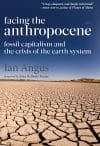
Scientific knowledge and debates in Anthropoene science have developed over the years, particularly in the two main fields involved: geology, which has mainly been concerned with formally defining the new epoch; and Earth System science, which studies the global biological, chemical, and physical changes that are reshaping the conditions of life on this planet. | more…

Karl Marx’s (and Frederick Engels’s) analysis of nineteenth-century Irish history revealed what is referred to as “the rift of Éire” in the colonial period. Indeed, it is in relation to the analysis of the systematic disruption of the Irish environment that Marx’s ecological inquiries can be seen as taking on a concrete and developed form, encompassing the ecological as well as economic robbery that characterized the Irish colonial regime. | more…
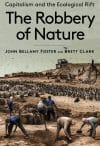
In the nineteenth century, Karl Marx, inspired by the German chemist Justus von Liebig, argued that capitalism’s relation to its natural environment was that of a robbery system, leading to an irreparable rift in the metabolism between humanity and nature. In the twenty-first century, these classical insights into capitalism’s degradation of the earth have become the basis of extraordinary advances in critical theory and practice associated with contemporary ecosocialism. In The Robbery of Nature, John Bellamy Foster and Brett Clark, working within this historical tradition, examine capitalism’s plundering of nature via commodity production, and how it has led to the current anthropogenic rift in the Earth System. | more…

The “turn toward the indigenous” in social theory in the last couple of decades, associated with the critique of white settler colonialism, has reintroduced themes long present in Marxian theory, but in ways that are often surprisingly divorced from Karl Marx’s critique of capitalism, colonialism, and imperialism. | more…

The Expropriation of Land, Labor, and Corporeal Life
Historical capitalism cannot be understood aside from its existence as a colonial/imperialist world system in which the violent exercise of power is an ever-present reality. In order to uncover the material conditions governing concrete capitalism, including its interface with land, nonwage labor, and corporeal life, it is therefore necessary to go beyond the inner reality of exploitation, and address expropriation, or the process of appropriation without equivalent (or without reciprocity) through which capital has sought to determine its wider parameters. | more…
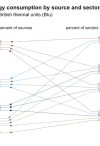
Can economic growth continue forever? This relatively simple question has posed some intellectual headaches for modern capitalism. Capital cannot tolerate any limits—that is, the drive for growth and the search for new markets are both necessary for the political and economic survival of capitalism. Viewed in this light, the implications of the question present something of an existential challenge to the current order. Capitalism cannot acknowledge any natural limits to economic growth, for that would mean acknowledging its ultimate demise. To keep up the pretense that capitalism represents a quasi-eternal and invincible system, most political leaders and economists who support the current order have begun reciting a series of elaborate narratives about the relationship between human economies and the natural world. | more…
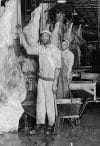
The December 2018 issue of Monthly Review featured John Bellamy Foster and Brett Clark’s “Marx and Alienated Speciesism” and Christian Stache’s “On the Origins of Animalist Marxism: Rereading: Ted Benton and the Economic and Philosophic Manuscripts of 1844,” both of which take up Ted Benton’s work on animals and Marxism. Here Ted Benton offers a response to the critiques offered by Foster and Clark, and Stache. | more…

In this continuation of the exchange on “Marx and Alienated Speciesism” and “On the Origins of Animalist Marxism,” John Bellamy Foster and Brett Clark, and then Christian Stache, reply to Ted Benton. | more…
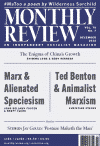
With the dramatic rise of eco-Marxism in recent years, a corresponding revolution has been taking place in studies of the human-nonhuman animal relationship. Previous critical analyses with respect to the position of animals in human society have been largely dictated by animal-rights discourse, more recently represented by figures such as Peter Singer. Many of these analyses contend that Karl Marx, Marxism, and historical materialism understand the human-nonhuman animal relationship through a dualist, “speciesist,” or human-centric, framework—a critique most famously championed by pioneering ecosocialist Ted Benton. This issue is dedicated to analyzing the theoretical propositions underlying Marx’s analysis and to demonstrate the antispeciesist and antidualist aspects of his evolutionary-materialist understanding. | more…











